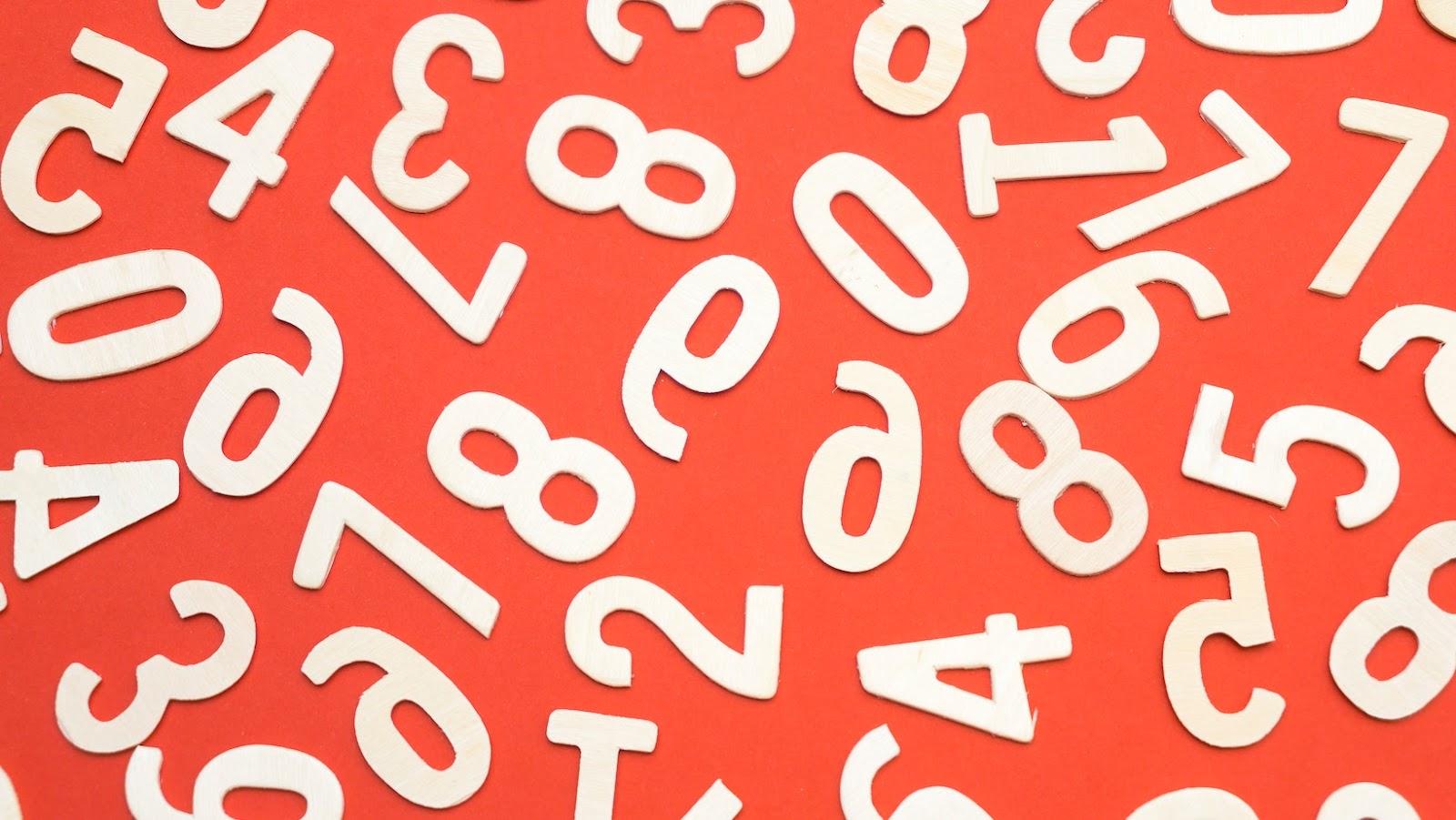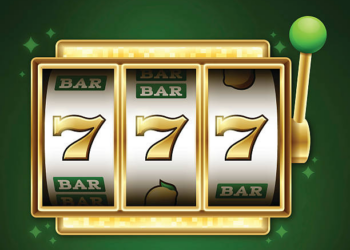Winning the lottery may seem like a far-fetched dream, and that’s because it is. The odds of winning the lottery depend on various factors, such as the number of tickets sold, possible combinations, and the game you’re playing.
For example, the odds of winning the Powerball jackpot are 1 in 292 million, while the odds of winning the Mega Millions jackpot are 1 in 302 million.
Although the odds may seem daunting, some people still try their luck by playing the lottery regularly. First, however, it’s essential to practice responsible gambling habits and only spend what you can afford to lose.
Pro tip: Instead of relying on the lottery for a financial windfall, consider investing your money in more reliable and predictable options, such as stocks, bonds, or real estate.
Understanding Lottery Odds
The lottery is a game of chance; the odds of winning depend on many factors, such as the type of lottery game you buy, the number of players, and the jackpot size.
In this article, we will review the basics of calculating the odds of winning the lottery and discuss strategies for increasing your chances.
How to calculate the odds of winning the lottery
Winning the lottery is a dream for many people, but it’s important to understand the odds before you start buying tickets. The odds of winning the lottery depend on several factors, including the number of possible combinations, the number of tickets sold, and the type of lottery you’re playing.
Here’s how to calculate the odds of winning the lottery:
First, determine the total number of possible combinations. This varies depending on the lottery, but it’s usually a large number in the millions or even billions.
Divide the number of possible winning combinations by the total number of possible combinations to get the odds of winning.
For example, if there are 25 million possible combinations and only one winning combination, the odds of winning are 1 in 25 million.x
Remember that buying more tickets doesn’t necessarily increase your chances of winning significantly. The odds of winning are still based on the total number of possible combinations, regardless of how many tickets are sold.
Pro tip: Instead of relying on the lottery for wealth, focus on building your financial stability through sound economic decisions like investing and saving for your future.
The difference between odds and probability
Many people use the terms “odds” and “probability” interchangeably, but they refer to distinct concepts in the context of lottery games.
Probability measures the likelihood of a particular outcome occurring, expressed as a percentage from 0% to 100%. For example, if you buy one ticket in a lottery with 1 million possible combinations, your probability of winning the jackpot is 0.0001%.
On the other hand, odds compare the number of ways to win to the number of ways to lose. In the same lottery example, your odds of winning the jackpot are 1 in 1 million or 0.0001%. Odds are typically expressed as a ratio or a fraction, such as 1:1,000,000 or 1/1,000,000.
Understanding the difference between odds and probability is important when playing the lottery because odds are used to calculate potential payouts. The higher the odds of winning, the lower the potential payout and vice versa. So, checking the odds and probability of a lottery game before playing is essential.
Pro tip: Don’t rely solely on probability or odds to make your lottery decisions. Remember, lottery games are based on chance, and there’s no guaranteed way to win.
The impact of lottery rules on winning odds
Lottery rules can have a significant impact on your chances of winning. While all lotteries operate differently, understanding lottery odds can help you decide which games to play and how to play them.
Here are a few things to keep in mind:
- The odds of winning the lottery vary depending on the game and the number of tickets sold.
- Games with larger jackpots tend to have lower odds of winning than those with smaller jackpots.
- Some lotteries offer additional chances to win with secondary prizes, increasing your overall chances.
- Playing frequently can improve your odds of winning over time, but it’s crucial to set a budget and play responsibly.
By understanding the odds of the lottery game you plan to play, you can decide which games to invest and how much to spend.
Strategies For Increasing Your Chances of Winning
Winning the lottery may seem like a long shot, but there are certain strategies you can employ to better your chances of striking it lucky. We’ll explore the various strategies for increasing your chances of success, from adopting a lottery syndicate to taking advantage of game patterns.
Although the odds are still against you, putting these tactics in place can make the difference between coming away empty-handed and turning a profit. Let’s get started.
Playing more tickets vs. playing less tickets
When increasing your chances of winning the lottery, playing more tickets versus playing fewer tickets can have pros and cons.
Pros of playing more tickets:
– Increases your chances of winning at least one prize
– Gives you a greater chance of hitting the jackpot
Cons of playing more tickets:
– Can be expensive
– Does not necessarily increase your overall odds of winning
Pros of playing fewer tickets:
– Less expensive
– Higher potential for a greater payout; since you can concentrate your funds on fewer, higher payoff numbers or games.
Cons of playing fewer tickets:
– Reduces your chances of winning at least one prize
– Lowers your chance of hitting the jackpot
The odds of winning the lottery are low, but playing strategically can maximize your chances. So, it’s important to weigh the pros and cons of each strategy and choose the one that’s best for you.
Pro tip: Always play with what you can afford to lose and what makes you feel comfortable.
Playing less popular lotteries
While popular lotteries like Powerball and Mega Millions offer huge jackpots, playing less popular lotteries can increase your chances of winning. However, regardless of the lottery you choose to play, the odds of winning always remain the same.
Here are a few strategies to increase your chances of winning the lottery:
Join a lottery pool: Playing in a group can increase your chances of winning as you can pool your resources to buy more tickets.
Choose unpopular numbers: Avoid using popular numbers like birthdates and anniversaries, as many people choose these. Instead, choose unique numbers that fewer people are likely to play.
Play consistently: Playing the lottery consistently over time can increase your chances of winning by giving yourself more opportunities to win.
Though, one should always remember that playing the lottery is a game of chance, and there is no guarantee of winning.
Joining a lottery pool
Joining a lottery pool is one way to increase your chances of winning the lottery. By pooling your money with other people, you’ll have more numbers to play and more chances of winning the jackpot. However, there are some strategies you can follow to further increase your chances of winning the lottery.
Stick to the same numbers: Choose a set of lucky numbers and stick with them. The more often you play the same numbers, the greater your chances of winning with those numbers.
Play less popular games: Avoid playing the most popular games and try your luck with less popular ones. These games may have lower jackpots but have better odds of winning.
Buy more tickets: The more you buy, the greater your chances of winning. Consider splitting the cost of tickets with your lottery pool group to increase your chances without breaking the bank.
Stay consistent: Playing the lottery is a game of chance, but remaining consistent with your numbers and playing regularly can increase your odds of winning over time.
Pro tip: Lottery pools operate under different rules and regulations in each state or country. Be sure to check with local laws and consult with a legal professional before starting a lottery pool.
Smart number selection strategies
Winning the lottery is about luck, but some smart number selection strategies can increase your chances of hitting the jackpot.
Here are some strategies you can use to improve your odds:
Stick to frequently drawn numbers: Look up the most commonly drawn numbers in the lottery you’re playing and use those when selecting your numbers.
Play the same numbers consistently: While this doesn’t increase your odds of winning, it can give you a better chance of winning BIG if your numbers eventually hit.
Consider the entire number field: Avoid selecting all your numbers from the high or low end of the range. Instead, mix it up to give yourself a better chance of hitting the winning combination.
Avoid consecutive numbers: Consecutive number combinations are rare, so avoiding them and choosing numbers spread out across the range is best.
Use a random number generator: If you struggle to generate numbers independently, consider using a random number generator to make your selections.
Remember, the lottery is still a game of chance, so never spend more than you can afford to lose.
Common Misconceptions About Lottery Odds
Unsurprisingly, people often have misconceptions about the true odds of winning the lottery. The idea of striking it rich with a single ticket purchase makes the prospect of winning most lotteries sound more attainable than it is.
Let’s look at some of the most common misconceptions about lottery odds.
The myth of the “lucky numbers”
The “lucky numbers” concept in the lottery is a myth perpetuated for generations. The truth is that all lottery numbers have an equal chance of being drawn, regardless of how often they have appeared in the past.
Misconceptions about the lottery odds include:
- The belief that playing more often can increase your chances of winning.
- The belief that choosing numbers that have not been drawn in a while can increase your odds.
- The belief that certain number combinations, such as birth dates or anniversaries, are luckier than others.
In reality, the odds of winning the lottery are based purely on mathematical probability and luck. So while there is no guaranteed way to win the lottery, your best bet is to play responsibly and for entertainment purposes only.
Tabella vincite 10 e lotto ogni 5 minuti
Hot and cold numbers refer to the common misconception that certain numbers in the lottery are more likely to be drawn than others. However, this fallacy is invalid and has no scientific basis.
The odds of winning the lottery remain the same regardless of whether a particular number has been drawn previously or not. This is because the numbers are drawn randomly, and the probability of each number being selected is independent of the previous outcomes.
Therefore, hot and cold numbers are meaningless and should not be used to select lottery numbers. Instead, players should focus on selecting numbers based on personal significance or using a completely random approach.
Pro tip: The best way to increase your chances of winning the lottery is by purchasing tickets or playing more frequently. However, it is essential to gamble responsibly and within your means.
Tabella vincite 10 e lotto ogni 5 minuti di oggi
Lottery-winning systems or strategies are often touted as a way to increase your chances of winning the lottery. However, the truth is that no proven system or strategy can guarantee a lottery win.
Here are the common misconceptions about lottery odds:
Myth #1: Buying more tickets increases your chances of winning.
Fact #1: While buying more tickets does increase your chances of winning, it does not significantly improve your odds. Each ticket has the same odds of winning, and buying more tickets only increases your chances to win.
Myth #2: Playing popular numbers or patterns increases your chances of winning.
Fact #2: The numbers drawn in the lottery are random and have no pattern. Using popular numbers or patterns will not increase your chances of winning.
Myth #3: Lottery-winning systems or strategies can improve your odds of winning.
Fact #3: No proven system or strategy can improve your odds of winning the lottery. The number of possible combinations determines the odds of winning the lottery, and only luck can determine the winning numbers.
Pro Tip: Instead of relying on lottery-winning systems or strategies, playing responsibly and within your budget is better. Remember, the lottery is a game of chance, and the odds of winning are low.
Understanding Lottery Probability
If you want to increase your chances of winning the lottery, it is important to understand lottery probability. Knowing the odds of winning and the expected returns will help you make an informed decision when playing the lottery.
This article will provide an overview of lottery probability and how it can affect your chances of winning.
Tabella vincite 10 e lotto ogni 5 minuti extra
When it comes to lotteries, people often use the terms “probability” and “chance” interchangeably; however, they have different meanings.
Probability refers to the likelihood of a specific outcome occurring from a set of possible outcomes. In the context of lotteries, it refers to the number of ways you can win divided by the total number of possible outcomes. Therefore, the probability of winning a lottery is always less than 1.
On the other hand, Chance refers to the possibility of an event occurring or not occurring. In the context of lotteries, it refers to the randomness of the draw and the possibility of any ticket winning regardless of the probability.
While chance is crucial in determining lottery winners, probability can help you choose your lottery numbers effectively. In addition, understanding probability can help you avoid commonly chosen numbers, reducing the likelihood of sharing the jackpot with other winners.
Hence, it’s essential to understand the difference between probability and chance to clearly understand the odds of winning the lottery.
Tabella vincite 10 e lotto ogni 5 minuti ced
Winning the lottery is a dream for many people. However, understanding the odds of winning the lottery is crucial in managing your expectations and improving your chances of winning.
The probability of winning the lottery depends on several factors, including the number of tickets sold, the number of winning tickets available, and the number of total possible combinations. For example, the odds of winning the Powerball jackpot are 1 in 292,201,338, while the odds of winning the Mega Millions jackpot are 1 in 302,575,350.
Although the odds of winning the lottery are slim, there are ways to increase your chances, such as playing more frequently, joining a lottery pool or syndicate, and choosing less popular numbers to avoid splitting the jackpot with multiple winners.
Nevertheless, it’s important to remember that the likelihood of winning the lottery is still governed by probability, and how much ever you try, you may still not win the big prize!
Pro Tip: Playing the lottery can be a fun way to dream big and have a chance at a life-changing sum of money. However, it’s crucial to only spend what you can afford to lose and to always gamble responsibly.
10 e lotto ogni 5 minuti tabella vincite
Probability and expected value are closely linked when understanding lottery probability and the odds of winning the lottery.
Probability is the likelihood of an event occurring, such as winning the lottery, and is expressed as a fraction or percentage. In the case of the lottery, the probability of winning a prize is determined by the total number of possible outcomes divided by the number of winning outcomes.
Expected value, however, is the average value of a random variable over multiple trials. In the case of the lottery, expected value considers both the probability of winning and the amount of the prize.
By multiplying the probability of winning each prize by the value of that prize, and then adding up the results, you can calculate the expected value of playing the lottery. However, it’s important to note that the expected value does not guarantee winning, nor does it consider the cost of purchasing the lottery tickets.
The Realities of Winning the Lottery
Having dreams of winning the lottery might seem like a distant reality for most people, as the odds of winning are incredibly low. But what are the actual realities of having a chance at winning the lottery?
On this page, we will give you an overview of the odds of winning the lottery and what your chances are.
Tabella vincite 10 e lotto ogni 5 minuti in diretta
While the chances of winning the lottery may seem like a dream come true, the reality is that the odds of hitting the jackpot are often stacked against you, and you’re more likely to be struck by lightning or attacked by a shark.
Here are the actual odds of winning some of the most popular lotteries around the world:
Powerball: Your odds of winning the grand prize are 1 in 292.2 million.
Mega Millions: Your odds of winning the Mega Millions grand prize are 1 in 302.5 million.
EuroMillions: Your odds of winning the grand prize are 1 in 139.8 million.
Oz Lotto: Your odds of winning the grand prize are 1 in 45.38 million.
While these odds may seem discouraging, it’s important to remember that people do win the lottery every year. However, it’s also crucial to play responsibly and within your means. Pro tip: Your chances of winning are the same whether you pick your numbers or use a computer-generated auto pick.
10 e lotto
Jackpots and rollovers in lotteries have no impact on the odds of winning. Contrary to popular belief, the chances of winning the lottery remain incredibly low regardless of how large the jackpot or how many rollovers have occurred.
Here are some facts to keep in mind:
The odds of winning the Powerball jackpot are 1 in 292 million, and the odds of winning Mega Millions jackpot are 1 in 302 million.
Rollovers occur when no one wins the grand prize, and the prize money goes to the next drawing. While rollovers increase the jackpot amount, they do not increase the odds of winning it.
So, when you play the lottery, remember that the odds of winning the grand prize are incredibly low, regardless of the jackpot or how many times the prize rolls over. Therefore, it’s important to play responsibly and within your means. Pro tip: Consider participating in lottery pools or syndicates to increase your chances of winning.
10 e lotto ogni 5 minuti
Winning the lottery can be a life-changing experience but comes with several financial considerations, including taxes. Therefore, it’s important to understand the odds of winning the lottery and the various taxes and other financial implications that come with it.
The odds of winning the lottery vary depending on the game and the number of players, but they are generally very low. For example, the odds of winning the Powerball jackpot are 1 in 292.2 million.
If you win the lottery, you must pay state and federal income taxes on your winnings. In addition, depending on your state, you may also be subject to additional taxes or withholdings. Therefore, it’s important to consult a financial advisor to understand the tax implications and make a plan for managing your newfound wealth.
Pro Tip: Despite the low odds of winning the lottery, some people still choose to play. If you decide to play, doing so responsibly and within your means is important. Remember to never spend more than you can afford to lose.
Conclusion
After exploring all the variables associated with the chances of winning the lottery, it’s time to conclude. From the analysis, we can see that the chances of winning the lottery are slim. The odds of an individual player winning the lottery are one in a million or more.
Even if you buy a ticket, it may not guarantee a winning result. So, it is advisable to keep realistic expectations when entering a lottery.
Tips for playing the lottery responsibly
Playing the lottery can be a fun and exciting entertainment, but it’s important to do so responsibly. Lottery games are designed to generate revenue for the state and, while there is the possibility of winning big, the odds are stacked against players.
Here are some tips for playing the lottery responsibly:
- Set a budget for yourself and stick to it. Don’t spend more money than you can comfortably afford to lose.
- Avoid chasing losses. If you don’t win, don’t keep playing hoping you will eventually win.
- Keep track of your playing habits. If you find that you’re playing the lottery more frequently, and spending more money than you used to, it may be time to cut back.
- Remember that playing the lottery is a game of chance, and the odds of winning are very low.
According to a report by CNBC, the odds of winning the Powerball jackpot are roughly 1 in 292 million. It’s always wise to gamble responsibly and have realistic expectations. Pro Tip: If you choose to play the lottery, treat it as a fun experience, and don’t rely on it as a source of income.
Final thoughts on lottery odds and probability.
In conclusion, the odds of winning the lottery are exceedingly small and should not be relied upon as a source of income. The probability of winning the jackpot in a lottery game depends on several factors, including the number of available tickets, the number of players, and the game’s specific rules.
While buying a lottery ticket can be a fun and low-cost way to dream about hitting it big, it is important to remember that it is ultimately a form of gambling and should be approached with caution and moderation.
Pro Tip: If you enjoy playing the lottery, set a budget and stick to it. Remember that the odds of winning are incredibly slim, so never spend more than you can afford to lose.




















